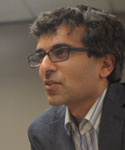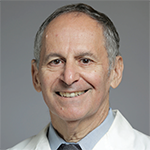Soumya Raychaudhuri, MD, PhD is the principal investigator for The Raychaudhuri Lab, associate professor of Medicine, Harvard Medical School, Boston, a member of Partners Center for Personalized Genetic Medicine, Boston, and a professor of genetics at the University of Manchester, U.K. He recently agreed to answer a few questions for The Rheumatologist and eNewsRheum.
Q: How did you become interested in the field of bioinformatics?
A: It was really in medical school that I got interested in bioinformatics. As an undergraduate student, I had studied mathematics and biophysics, and felt there were many areas in medicine that did not adequately use quantitative approaches. It seemed like a very nice area to work in and [would] take advantage of the [math] skills I had … [and] the burgeoning large data sets [available] to work on problems that were relevant to human disease. I was excited about it at the time and am still excited about it.
Q: How then did you become interested in rheumatology?
A: I was fascinated by the cases I saw on the wards. A lot of the cases were tremendously interesting, and it was very unclear to me how they worked mechanistically, and how the pathology was playing out. It was very clear that these diseases were systemic diseases that involved many components of the immune system. … As someone who was interested in data and how data can help us understand complex systems, these diseases naturally appealed to me.
Q: How can big data affect the practice of rheumatology?
A: We’re very limited in what we can do to study disease in the humans who have them. But one thing we can do now—and increasingly—is to make lots of measurements, collect lots of data. … We have the opportunity to take all that data and come up with diagnostics and, perhaps, even the causal pathways for these different diseases. In the long run, a careful understanding of the causal pathways can, of course, lead to new treatments.
Q: How does your time as a clinician humanize patients and inform your research?
A: It’s a wonderful privilege to be someone’s doctor. And to know the research you’re doing might actually help some of the people you work with is a powerful thing. A second aspect is that, on some occasions, you really get to see what the problems for a field are. You get to see what drugs are working, what drugs aren’t.




